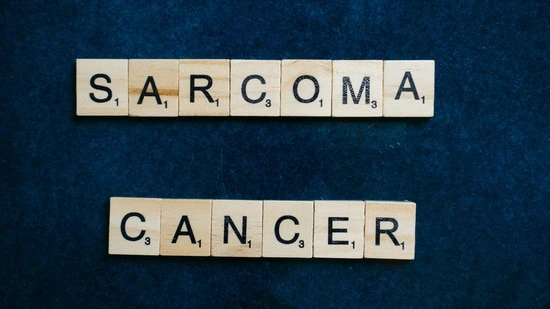Sarcoma is a broad group of cancers that develop in the connective tissues of the body, including bones, muscles, fat, nerves, and blood vessels.
Unlike many other cancers that have well-established causes, such as smoking for lung cancer or HPV infection for cervical cancer, sarcoma often develops without a clear, identifiable reason. This uncertainty makes prevention particularly challenging. Also read | All about sarcoma: A rare, aggressive cancer that spreads faster than any other
In an interview with HT Lifestyle, Dr Pushpinder Gulia, director of surgical oncology and robotic oncosurgery, CK Birla Hospital, Gurugram said, “Ongoing research has revealed certain risk factors that may increase the likelihood of developing sarcoma. Understanding these contributing causes is crucial, not only for early detection but also for taking necessary precautions where possible.” The oncologist further shared a few possible causes of sarcoma.
1. Genetic predispositions and syndromes
Certain inherited conditions can increase the risk of sarcoma, such as:
- Li-Fraumeni syndrome
- Neurofibromatosis type 1 (NF1)
- Retinoblastoma (RB1) gene mutation
- Werner syndrome and Gardner syndrome
These genetic syndromes often involve mutations in tumor suppressor genes, making individuals more prone to cancers, including sarcomas.
2. Previous radiation therapy
People who have undergone radiation therapy for other cancers (like breast or lymphoma) are at slightly higher risk of developing a radiation-induced sarcoma at the site of treatment, typically after a latency period of 5-10 years. Also read | Is sarcoma deadlier than other types of cancer? Know how it is different from others
 3. Exposure to certain chemicals
3. Exposure to certain chemicals
Long-term exposure to certain industrial chemicals, such as herbicides, dioxins, and vinyl chloride, has been linked to higher sarcoma risk, particularly angiosarcoma and soft tissue variants.
4. Chronic lymphedema
Prolonged swelling due to lymph fluid buildup (often after lymph node removal or radiation) can increase the risk of developing lymphangiosarcoma, a rare and aggressive form of sarcoma.
5. Viral infections
Certain viruses, like Human Herpesvirus 8 (HHV-8), are associated with Kaposi sarcoma, especially in individuals with weakened immune systems, such as those with HIV/AIDS.
6. Age and gender
Some sarcomas are more common in children (e.g., Ewing sarcoma), while others affect older adults (e.g., liposarcoma). Men are slightly more likely to develop sarcoma than women. Also read | Gynaecological Sarcoma or Uterine Cancer: Symptoms and treatments, as revealed by doctors
“While many sarcoma cases occur without clear cause, awareness of genetic risk factors, avoiding carcinogenic exposures, and regular monitoring in high-risk individuals can aid in earlier diagnosis and timely intervention,” Dr Pushpinder Gulia said.
